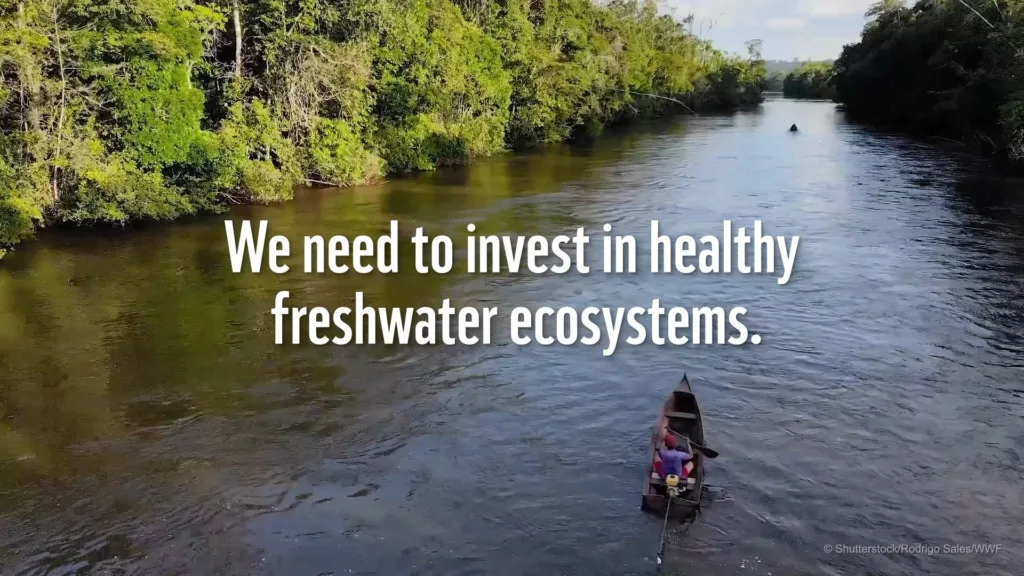The High Cost of Cheap Water: World Wide Fund for Nature (WWF) report on World Food Day
Water, the world’s most precious yet undervalued resource, lies at the heart of a mounting global crisis that threatens both human and planetary health, warns a new report, published today by WWF.
Released on World Food Day, The High Cost of Cheap Water uncovers a stark reality: the annual economic value of water and freshwater ecosystems is estimated to be $58 trillion – equivalent to 60% of global Gross Domestic Product (GDP)*. But the world’s freshwater ecosystems are in a downward spiral, posing an ever growing risk to these values.
Key highlights
There is a lack of awareness and understanding of the importance of water resources, the report refers to it as water
blindness.
In 2021, the estimated global economic value of water was around US$58 trillion, equivalent to 60% of the world’s GDP.
♦ Direct economic benefits, such as water consumption for households, irrigation amount to $7.5 trillion annually.
♦ Indirect economic benefits such as purifying water, enhancing soil health, amount to $50 trillion annually.
Key threats to freshwater ecosystems
♦ Overexploitation of water particularly by agriculture (responsible for 70 % of freshwater usage globally).
♦ Climate change disrupts the hydrological cycle and reduces water availability.
♦ Water pollution by human activities like use of fertilizers, microplastics.
♦ Flow modification & fragmentation by Infrastructure like dams and river diversions.
Recommendations
Government should
♦ Restore and protect vital freshwater ecosystems: Revitalize 30% of Degraded Rivers and Wetlands by 2030.
♦ End Harmful Subsidies in agriculture and energy.
Industry and business should
♦ Evaluate and reveal water risks from scarcity, pollution, and floods.
♦ Implement water-saving technologies and advanced treatment to minimize wastewater generation.
Financial institutions should Invest in Nature-based Solutions for climate adaptation.
About World Wide Fund for Nature (WWF)
Genesis:Established in 1961
About:International non-governmental organization working in the field of wildlife preservation.
Function:it works around six areas: food, climate, freshwater, wildlife, forests, and oceans
Report:Living Planet Report (publishes every two years)

